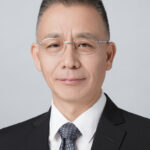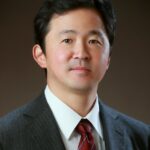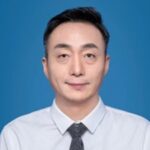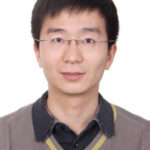Distinguished Speakers
Distinguished Speakers
Seismic Performance of Underground Structures: 1-g Shaking-table Tests
Yuan Yong
Tongji University, China
Dr Yuan Yong, full professor of Tongji University since 1996. Professor Yuan is currently the member of European Academy of Sciences and Arts (EASA), president of Shanghai Science & Technology Development Foundation (SSTDF), director of Sino-Austria Research Center on Tunnel and Underground Engineering (ACTUE), and Sino-Belgium Joint Laboratory of Industrialized Construction (LIC). He also serves as members of Committee on Education and Training of International Tunnelling Association (ITA-CET), Performance Committee of federal Internationale de Beton (fib), editorial board members of Engineering Structures, Structural Concrete, Scientific Reports, and Guest Editor of Frontiers of Structural and Civil Engineering.
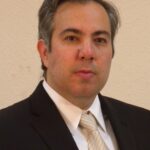
Tsunami–induced failure of breakwaters and scour-induced failure of bridge foundations
Ioannis Anastasopoulos
ETH Zürich, Switzerland
Ioannis Anastasopoulos has been Full Professor of Geotechnical Engineering at ETH Zurich since 2016. Since 2023, he is the Head of Department of Civil, Environmental and Geomatic Engineering. He specializes in geotechnical earthquake engineering and soil–structure interaction, combining numerical with experimental methods. He is the inaugural recipient of the ISSMGE Young Researcher Award in Geotechnical Earthquake Engineering, and winner of the 2012 Shamsher Prakash Research Award. He has been a consultant in major projects in Europe, US and the Middle East. His consulting work ranges from the design of pile-rafts of tall buildings, to bridge foundations, metro stations, tunnels, and quay walls, as well as special design against faulting. He is Editor-in-Chief of Soil Dynamics and Earthquake Engineering, and has been Associate Editor or Editorial Board Member in several Journals, including the JEE and Géotechnique. He is a Director of IAEE, and Chair of ISSMGE TC104 on Physical Modelling.
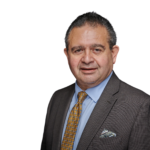
Thirty Years of Transparent Soils: Evolution, Innovations, and Future Directions in Physical Modeling
Magued Iskander
New York University, U.S.A.
Magued G. Iskander, Ph.D., P.E., F.ASCE, is a leading expert in geotechnical engineering with over 30 years of experience in the analysis, design, and construction of foundations. He is a professor at NYU’s Tandon School of Engineering and has chaired the Civil and Urban Engineering Department since 2013. Dr. Iskander is widely recognized for pioneering the use of transparent soils to study geotechnical phenomena. His research covers machine learning in geotechnics, tunneling, seismic earth pressure, and recycled polymer piling, among other topics. A licensed Professional Engineer in New York, New Jersey, and Wisconsin, he has served as an expert in New York courts. Dr. Iskander holds a B.Sc. in Civil Engineering from Alexandria University and a Ph.D. from UT Austin. He has authored over 250 publications, secured $26M+ in funding, and received several awards, including the NSF CAREER Award and the Chi Epsilon Teaching Award. He has graduated 16 doctoral and 40+ master’s students.
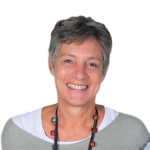
Centrifuge Modelling of River Embankment Instabilities Induced by Transient Seepage
Giulia Viggiani
University of Cambridge, England
Giulia Viggiani joined the Department of Engineering at the University of Cambridge as Professor of Infrastructure Geotechnics in 2017. Before this, she was Full Professor of Geotechnics at Università di Roma Tor Vergata. She has a Laurea in Civil Engineering from Università di Napoli Federico II and a PhD in Geotechnical Engineering from the City University of London. She has been Scientific Visitor at the Max Planck Institute for Mathematics in the Sciences, in Leipzig, MTS Visiting Professor of Geomechanics at the University of Minnesota, and Academic Visitor at Imperial College. She currently chairs ISSMGE TC204 – Underground Construction in Soft Ground. She has carried out original research on tunnelling and construction processes, tunnelling induced damage assessment and connected mitigation and remedial measures, and performance based design of geotechnical structures under seismic actions, using a combination of field monitoring and laboratory observations, theoretical analyses, and physical and numerical modelling.
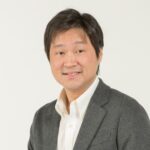
Modelling soil-root hydromechanical interaction for nature-based solutions
Anthony Leung
Hong Kong University of Science and Technology (HKUST)
Dr Leung is an Associate Professor in the Civil and Environmental Engineering and the Director of the Geotechnical Centrifuge Facility at the HKUST. His research expertise is unsaturated soil-vegetation interaction with emphasis on geotechnical engineering applications such as slope stabilisation. Dr Leung has published more than 120 journal articles in the subject of soil-vegetation interaction and co-authors a textbook ‘Plant Soil Slope Interaction’ published by Taylor & Francis. Dr Leung is the awardee of the 2022 Geotechnical Research Medal (best paper in Geotechnique), 2022 Outstanding Young Geotechnical Engineer Award of the ISSMGE, 2021 R. M. Quigley Award (best paper in Canadian Geotechnical Journal), 2019 Excellent Youth Scholar of the NSFC and 2019 Bright Spark Lecture Award of the ISSMGE. He is currently the President of the Hong Kong Geotechnical Society (HKGES) and the General Secretary of the TC106 and TC107 (Tropical& Residual Soils).
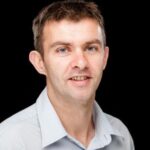 Physical modelling beyond the laboratory and at different scales
Physical modelling beyond the laboratory and at different scales
Conleth O’Loughlin
University of Western Australia
Conleth O’Loughlin is a Professor of Geotechnical Engineering in the Centre for Offshore Foundation Systems at The University of Western Australia. He received his Civil Engineering Degree from The Queen’s University of Belfast in 1997 and his PhD from Trinity College Dublin in 2002. His research interests include anchoring systems, penetrometer testing and foundation response of offshore wind turbines, as communicated in over 200 publications. He was Editor in Chief of the International Journal of Physical Modelling in Geotechnics between 2018 and 2021 and is the Director of the National Geotechnical Centrifuge Facility, located at the University of Western Australia.
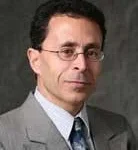
New Facilities, New Equipment, and Measuring Techniques
Mourad Zeghal
Rensselaer Polytechnic Institute, U.S.A.
Dr. Zeghal research interests include: Computational Soil Micro-Mechanics, Geotechnical-System Identification, Seismic Response Monitoring, and Information Technology Applications in Geomechnics. He is active with the Center for Network for Earthquake Engineering Simulation (CEES), Scientific Computation Research Center (SCOREC) and the Inverse Problems Center (IPRPI). Failure of geosystems due to natural or man-made hazards such as hurricanes, floods, earthquakes, or terrorist attacks may have monumental repercussions, sometimes with dramatic and unanticipated consequences on human life and the country’s economy. Dr. Zeghal’s research focuses on three areas that are central to the national effort to reduce the impact of these hazards: (1) multiscale modeling of geosystems, (2) model validation and calibration, and (3) development of improved optimal design tools. The methodology of evaluating and predicting the performance of geosystems is undergoing a significant paradigm shift. Computational simulations are destined to become more prominent than empirical approaches and will ultimately become the main tool for analysis and design of civil systems. A hierarchy of adaptive and cost-effective computational models capable of accurately predicting the multiscale and multiphysics response of geosystems is being developed. This hierarchy enables a seamless handling of the initiation and evolution of the various response and failure mechanisms of soils under extreme loading conditions. The hierarchical models range from homogenized continuum to discontinuous coarse-particle formulations. A class of innovative system identification and inverse problem tools are being developed to calibrate these models using experimental data ranging from soil sample and centrifuge tests to full-scale and field tests. This new generation of computational procedures is being translated to practice through careful interactions with practitioners (from industry and government laboratories) and the introduction of changes in the educational curricula of our students.
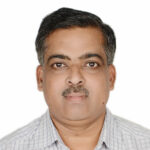
Evaluation of the Behavior of Geogrid-Reinforced Soil Walls Subjected to Rainfall Through Centrifuge Model Tests
B V S Viswanadham
Indian Institute of Technology, Bombay, India
Prof. BVS Viswanadham has been working as a faculty at Department of Civil Engineering IIT Bombay, India for the last 25+ years. Prior to joining the institute, he worked as a Senior Project Officer at Department of Ocean Engineering, IIT Madras and Scientist, CSIR- Central Road Research Institute (CRRI), New Delhi, India during 1989-1991 and 1991-1998. In 1996, he returned to India from Germany after completing his Dr.-Ing. programme during 1994-1996. Currently, Prof. Viswanadham is Institute Chair Professor during May 2017-April 2020 and since March 2021. His research interests are Centrifuge-based physical modelling, Ground Improvement; Geosynthetics and Design of Geosynthetic Reinforced Soil Structures; Environmental Geotechnics; Waste containment systems; Landfills; Deep Excavations; Slope stabilization and Slope protection; Natural hazard mitigation.
Drained or Partially Drained – that is the question.
Tetsuo Tobita
Kansai University, Suita, Japan
Dr. Tetsuo Tobita is a Professor of Civil Engineering at Kansai University, Osaka, Japan. He received his bachelor’s (1995) and master’s (1997) degree in Civil Engineering from Kyoto University, Japan. In 2002, he obtained his Ph. D from University of Southern California, USA with the dissertation title “Energy-based modeling of liquefaction and earthquake site response.” From 2002 to 2016, he had been an assistant and associate professor at the Disaster Prevention Research Institute, Kyoto University. In April 2016, he moved to Kansai University. He has over 20 years of experience in the field of Earthquake Geotechnical Engineering. He has active research interests in soil liquefaction, earthquake-induced landslides, and dynamic soil-structure interaction problems. His expertise extends from dynamic centrifuge modelling to numerical analysis. Currently, he is a member of ISSMGE TC104 on Physical Modelling. Recently, he, as one of editors, published an open-access book of the proceedings of “LEAP-ASIA-2019” workshop.
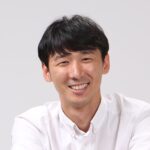
Physical Modeling on Pullout Behaviors of Root-inspired Anchors: Emphasis on interplays among architectural complexity, embedment depth and material stiffness
Tae-Hyuk Kwon
Korea Advanced Institute of Science of Technology (KAIST), Korea
Tae-Hyuk Kwon currently works as an associate professor in Department of Civil and Environmental Engineering at Korea Advanced Institute of Science and Technology (KAIST), Daejeon, Korea. He received his PhD at KAIST. During his PhD, he spent one year working as a visiting scholar at Georgia Tech. He worked at Lawrence Berkeley National Laboratory (LBNL) as a postdoctoral fellow, and at Washington State University as a tenure-track assistant professor. His research mainly focuses on three themes: energy geotechnology, bio-geotechnics, and natural geohazards. The theme “bio-geotechnics” aims to understand geo-bio-chemo-thermo-hydro-mechanically coupled processes in subsurface and develop nature-inspired sustainable geotechnical design and ground improvement techniques.
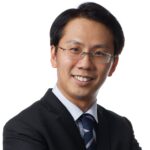
Seismic Induced Uplift of Buoyant Structures in Liquefiable Soils
Chian Siau Chen, Darren
National University of Singapore, Singapore
Dr. Chian Siau Chen, Darren is the Vice Dean of the College of Design and Engineering at the National University of Singapore. Dr. Chian is also the Director of the Centre for Soft Ground Engineering and an Associate Professor at the Department of Civil and Environmental Engineering at the university. He obtained his Ph.D. and B.Eng. from Cambridge University and Nanyang Technological University respectively. His core research interests are earthquake engineering and ground improvement. Dr. Chian was named as Asia’s Top 10 Innovators under 35 (TR35) by the MIT Technology Review in 2016, GeoSS Promising Young Geotechnical Engineer Award in 2018, Enterprise Singapore SAC Distinguished Award in 2018, Ministry of Transport Distinguished Minister Innovation (Distinguished) Award in 2021, Award Finalist of the Land Transport Excellence Award (Most Innovative Solution) and Prominent Geotechnical Engineer Award in 2022. Dr. Chian is the current President of the Geotechnical Society of Singapore (GeoSS).
Centrifuge model testing on three-dimensional excavation effects in soft ground
Xianfeng Ma
Tongji University, China
Dr. Xianfeng Ma is currently a professor at the department of geotechnical engineering, Tongji Unviersity, China, where he got his degrees from bachelorship to doctorship. From 1997 to 2003, he stayed in Japan, first as a visiting PhD student, then an assistant professor at Tokushima University followed by a researcher at Geo-Research Institute in Osaka. He returned to Tongji University in 2003, responsible for the establishment of geotechnical centrifuge modelling lab, of which he is now the director. He also stayed one year in 2008 at Schofield Centre, Cambridge University as a visiting scholar hosted by Professor Malcolm Bolton. His research topics covers a variety of fields including centrifuge modelling on retained excavation, tunnelling impact on surrounding ground and adjacent structures, soil improvement and shaking table tests on underground structures etc. He is a member of TC104 of ISSMGE and currently the editor in chief for IJPMG.
New Facilities, New Equipment, and Measuring Techniques
Yu Zhao
Zhejiang University, China
Dr. Yu Zhao, a Professor of geotechnical engineering at Zhejiang University, the director of ZJU400 centrifuge laboratory at the same institution, holds a PhD from the University of Tokyo (2010). His research spans slope stability and landslide kinetics, soil displacement measurement with emphasis on LiDAR and photogrammetry method, and hypergravity experiment by centrifuge modelling. He has published more than 70 peer reviewed journal papers or book chapters and supervised many MSc and PhD students. Leading research programs such as the Major National Science and Technology Infrastructure Project (CHIEF) and National Natural Science Foundation Projects (NSFC), Dr. Zhao addresses challenges in centrifuge modelling of slope instability and transition to flow-type failure, debris avalanche, seismic performance of earth dam stability and other important topics on landslides.
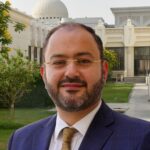
Harnessing Biogeotechnical Methods for Sustainable Ground Improvement
Mohamed Arab
University of Sharjah, U.A.E.
Dr. Mohamed G. Arab is a Professor of Geotechnical Engineering at the University of Sharjah, UAE. He holds a Ph.D. in Civil and Environmental Engineering from Arizona State University. With over 20 years of experience, Dr. Arab’s research focuses on soil improvement, geotechnical earthquake engineering, and bio-geotechnical methods. He has authored 88 papers in international journals and conferences and has secured over 10 million dirhams in research funding as PI and Co-PI. His work emphasizes sustainable engineering solutions. Dr. Arab is active in the geotechnical community as an editor, reviewer, and member of international societies, and has received multiple awards, including the 2022/2023 Annual Incentive Award for Community and University Service from the University of Sharjah.
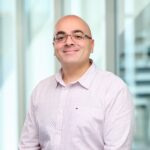 Advancements in Liquefaction Risk Assessment Under High Overburden Pressure
Advancements in Liquefaction Risk Assessment Under High Overburden Pressure
Waleed El-Sekelly
New York Univereisty Abu Dhabi, U.A.E.
Dr. Waleed E. El-Sekelly is a visiting associate professor and the technical manager of the geotechnical centrifuge facility at New York University Abu Dhabi, NYUAD. His research interests cover topics such as geotechnical centrifuge and full-scale testing, numerical modeling, Artificial Intelligence applications in geotechnical engineering, and liquefaction evaluation and settlement analysis. He has published over 50 technical journal and conference articles. He also received several international awards including the American Society of Civil Engineers (ASCE) Middlebrooks Award for best journal publication.
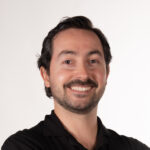
Centrifuge Modeling of Pile Installation: from rapid to prolonged impact methods
Miguel Cabrera
Delft University of Technology (TU Delft), Netherlands
Miguel’s research is in the area of geotechnical engineering with a focus on complex, multiphase, geophysical and environmental flows, and soil-fluid-structure interaction systems. His interests lie in linking the fundamental understanding of such physical processes with the current and future challenges of the natural, living and built environment. Miguel holds a Bachelor on Civil Engineering from Universidad Nacional de Colombia and a Master in Geotechnical Engineering from Universidad de los Andes, Colombia. Miguel received his PhD from the University of Natural Resources and Applied Life Sciences, Austria, working on the simulation of granular flows in rotating systems an sponsored by a Marie Skłodowska-Curie fellowship through the MUMOLADE project. From 2016 to 2022 Miguel was appointed as Assistant and then Associate Professor at Universidad de los Andes, Colombia. Since August 2022, Miguel joined the section of Geo-Engineering at TU Delft, working in the physical modelling of land instabilities and soil-structure interaction systems.

